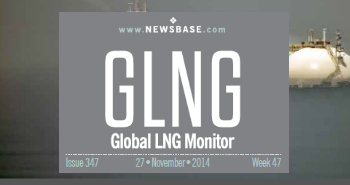Serbia signs MoU with North Macedonia for gas interconnector

Serbia has taken another step to diversify its energy supply, signing a memorandum of understanding with North Macedonia on the construction of a 70 kilometre natural gas pipeline on October 7.
The pipeline, which will have an annual capacity of 14bn cubic metres, is part of a Serbia’s broader effort to secure alternative energy sources and bolster energy security.
The planned interconnector between Serbia and North Macedonia is intended to link to the liquefied natural gas (LNG) terminal in Alexandroupolis, Greece, providing Serbia with access to gas supplies from wider European and global markets.
The development comes as Serbia aims to reduce its reliance on Russian gas, which currently supplies the majority of its energy needs. Of the 2.5bn cubic metres of natural gas consumed annually by Serbia, approximately 2.2bn cubic metres come from Russia’s state-owned energy giant Gazprom.
Despite renewing a long-term gas contract with Gazprom in May 2022, Serbia has been actively seeking new partnerships to diversify its gas sources. In November 2023, Belgrade struck a deal with Azerbaijan to secure 400mn cubic metres of gas annually between 2024 and 2026.
Serbia’s state-owned gas company Serbijagas also signed contracts with Azerbaijan's SOCAR in late September to ensure the supply of an additional 1mn cubic metres of gas per day throughout the winter of 2024-2025.
Prime Minister Vucevic emphasised the significance of the new pipeline deal during his meeting with North Macedonia’s Prime Minister Hristijan Mickoski, highlighting the importance of ensuring energy security in the face of climate change and aligning with the EU's green agenda.
The EU has been pressuring its member states and allies, including Serbia, to reduce reliance on Russian energy in response to the ongoing war in Ukraine. Although Serbia has not joined the EU in imposing sanctions on Russia, it has sought to explore new energy partnerships as part of its long-term strategy.
In addition to the gas pipeline, Vucevic noted that North Macedonia has also proposed the construction of an oil pipeline, which could provide Serbia with an alternative oil supply route, further enhancing its energy resilience.



Follow us online